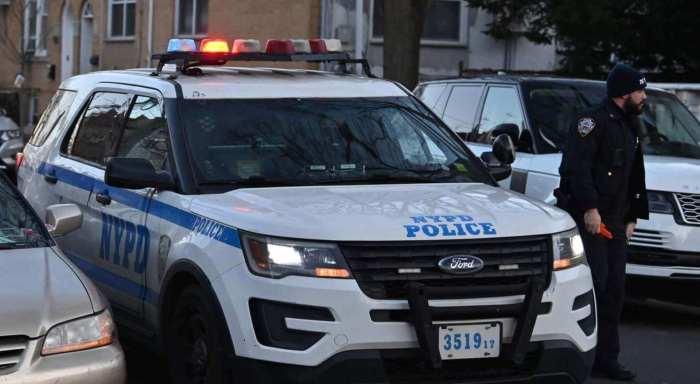
A proposed offshore natural gas pipeline through New York’s lower bay was denounced by City Comptroller Scott Stringer Wednesday, but the company behind it says it is necessary to reduce the city’s use of oil.
The 23-mile pipeline, stretching from New Jersey to the Rockaways, was proposed by the energy company, Williams Partners L.P., as part of its Northeast Supply Enhancement project. The $1 billion project will expand and upgrade the existing 10,000-mile-long Transco pipeline, which runs from south Texas to New York City and provides more than half of the natural gas across the city and Long Island, according to Williams.
The expansion of the pipeline would be “a monumental step backwards” in New York City’s goal of cutting 80 percent of emissions by 2050, Stringer said in a statement.
“Rather than enhance the energy infrastructure of yesterday, our city must instead do all that it can to transition to renewable energy sources and promote greater energy efficiency,” the statement said.
Williams argues that the Northeast Supply Enhancement project aligns with the city’s goal, since natural gas emits less carbon dioxide than coal and oil.
“The project will allow National Grid to annually displace approximately 900,000 barrels of heating oil and reduce CO2 emissions in New York City and Long Island by up to 200,000 tons per year,” Williams spokesman Chris Stockton said. “This is the equivalent of removing nearly 500,000 cars from the road for one year.”
The construction also would “lead to the creation of thousands of union jobs” in the state, said Pat Purcell, executive director of the the New York State Laborers LECET.
Union members are “disappointed in the comptrollers’ decision to oppose the NESE project” and urge Stringer to “reconsider his position,” Purcell said in a statement.
The project, which also includes a new 10-mile pipeline in Lancaster County, Pennsylvania, and a new 3.5-mile pipeline in Middlesex County, New Jersey, must be approved by the Federal Energy Regulatory Commission, which issued a draft environmental impact statement in March of this year.
“FERC staff determined that construction and operation of the NESE Project would result in some adverse environmental impacts,” the statement said. “Most of these impacts would be temporary and occur during construction.”
But Stringer said the construction “risks damage to many of New York’s most precious habitats and natural assets, including New York Harbor, Jamaica Bay and the Rockaways’ many beaches,” and climate advocates are critical of the use of natural gas since it is not a renewable source of energy.
“NYC Comptroller Stringer’s opposition to the massive fracked gas Williams pipeline raises the bar for elected officials to join us as we rise for climate,” Pete Sikora, the climate campaigns director for New York Communities for Change, said in a statement. “Together, we can stop these polluting projects and move to 100 percent renewable energy through good union jobs.”
New York Communities for Change, along with several other groups, will participate in a Peoples Climate Movement NY rally in Battery Park at 5:30 p.m. Thursday to call for a transition to 100 percent renewable energy.

































